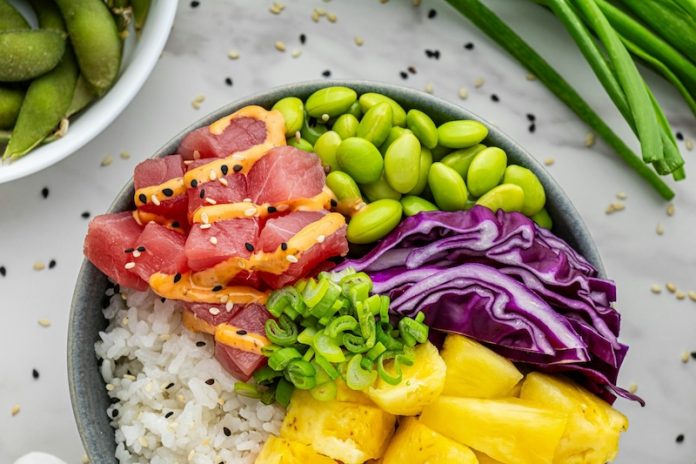
Inflammation is the body’s natural defense against injury or infection, but when it becomes chronic, it can lead to diseases like heart disease, diabetes, arthritis, and even cancer.
Fortunately, what we eat can play a big role in keeping inflammation in check. Scientists have found that certain foods have powerful anti-inflammatory effects, making them essential for long-term health and disease prevention.
One of the stars of anti-inflammatory foods is fatty fish like salmon, mackerel, and sardines. These fish are rich in omega-3 fatty acids, which are known to reduce inflammation at the cellular level.
Research has shown that omega-3s can lower levels of inflammatory markers like C-reactive protein (CRP) in the blood. A 2016 study found that people who ate fatty fish regularly had a lower risk of developing conditions like rheumatoid arthritis and heart disease.
Fruits and vegetables are another key part of an anti-inflammatory diet, especially those rich in antioxidants.
Berries, such as blueberries, strawberries, and blackberries, are packed with anthocyanins, which give them their vibrant colors and have been shown to reduce inflammation.
A study published in 2018 revealed that people who consumed more berries experienced lower levels of oxidative stress, a major contributor to chronic inflammation.
Leafy greens like spinach and kale are also important because they contain vitamins and minerals, such as vitamin E and magnesium, that combat inflammation.
Spices are small but mighty when it comes to fighting inflammation. Turmeric, often found in curry dishes, contains curcumin, a compound with strong anti-inflammatory properties.
A 2019 clinical trial demonstrated that curcumin supplements significantly reduced pain and swelling in people with arthritis.
Ginger is another spice with anti-inflammatory benefits. Studies suggest that ginger can reduce inflammation in the gut, making it helpful for people with digestive issues.
Nuts and seeds also deserve a place on your plate. Walnuts, almonds, and flaxseeds are not only rich in healthy fats but also contain compounds that reduce inflammation.
A long-term study published in 2020 found that people who regularly ate nuts had lower rates of heart disease, which is closely linked to inflammation.
Whole grains like oats, brown rice, and quinoa are better for inflammation than refined grains like white bread or pasta. Whole grains are high in fiber, which promotes healthy gut bacteria and lowers inflammation.
Researchers have found that diets rich in whole grains are associated with a reduced risk of chronic diseases, including type 2 diabetes and certain cancers.
Another powerful anti-inflammatory food is olive oil, especially extra virgin olive oil. This healthy fat is a staple of the Mediterranean diet, which has been shown in many studies to reduce inflammation and improve heart health.
One study highlighted how people who consumed extra virgin olive oil daily had lower levels of inflammatory markers and a reduced risk of stroke.
Finally, green tea deserves a special mention. Known for its antioxidants called catechins, green tea has been shown to fight inflammation and even reduce the risk of certain cancers.
A 2017 review found that drinking green tea regularly improved markers of inflammation in people with metabolic disorders.
By adding these foods to your diet, you can naturally reduce inflammation and improve your health. The research is clear: what we eat has a direct impact on our body’s ability to fight disease.
Incorporating a variety of these anti-inflammatory foods into your meals can help protect against chronic illnesses and promote a longer, healthier life.
If you care about nutrition, please read studies about why vitamin K is so important for older people, and this snack food may harm your heart rhythm.
For more information about nutrition, please see recent studies about vitamin that may protect you from type 2 diabetes, and results showing this common chemical in food may harm your blood pressure.
Copyright © 2024 Knowridge Science Report. All rights reserved.



